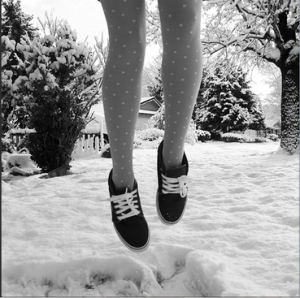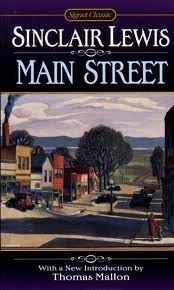
Slip sliding away….
Quicksand is a colloid hydrogel consisting of fine granular material, clay, and water. Quicksand forms in saturated loose sand when the sand is suddenly agitated.
In other words, wow, did I walk into it this time.
I’m not particularly vocal about my political beliefs, though if I find a kindred, like-minded human I can wax on with the best of them. But I do go by the maxim that most individuals have their own take on politics and policies and I’m not likely to move them one way or the other.
With sorrow I report that not everyone adheres to that discipline.
I normally teach 4th to 6th grade students at our Lutheran church on Sundays between services, but Sunday the kids were at a weekend church retreat out-of-state, so I had an early out, so to speak, and was able to socialize with adults in the building next door during a ministry fair. I thought it a nice change after weeks in the classroom. I said hello to several friends and after a while drifted to the side of the room while waiting for my husband who was catching up with some of the guys. A gentleman struck up a conversation with me, beginning his discourse with his passion for fixing things and how he volunteers frequently at church for building maintenance.
As he spoke, I was congratulating myself for meeting someone new, taking an interest in his interests, and practicing my listening skills.
“He seems lonely,” thought I.
He continued to tell me how he has tinkered with the doors to make them safer, rescued stuck keys from unlikely places, changed lightbulbs in precarious positions.
“Really knows his stuff and glad he’s stepped up to take charge of these issues,” I mused.
Now retired, he ran through the path of his career and enlightened me about the intricate internal machinations of mounted cameras in his field of work.
“Well,” I reckoned, “no wonder he has this attention to detail. He’s a lifelong tinkerer.”
While I pandered to myself, I suddenly realized he’d jumped the shark. Now he was talking politics. My incessant nodding became less robust.
I became the civics teacher: “The President doesn’t hold the purse strings on that, Congress has the fiscal responsibility Our Congressman and Senator …”
Oh, he was familiar, by Jove. No, but he’d have none of that. In fact he began lecturing me. Giving me a treatise on how this country was spiraling down.
I’ve been taught to be kind to others; I’ve also been taught to be assertive. I was polite, but not to the point of agreeing.
Then came the quicksand. The discourse devolved as the saturated loose sand was suddenly agitated. “John” gave me all the talking points about why all guns should be legal and how We all should be packing and if We would all just do that We’d all be safe. He was including me in his we.
What I said was, “You and I don’t agree.”
He continued with his best persuasive speeches and I said, “Listen, my mother’s classmate died in that parking lot that Gabby Gifford was shot in last year.”
“Well, that will happen,” he said, “Nothing we could have done could have prevented it.”
“Really? If he — the shooter — had had a lesser caliber gun and had to reload, she would have lived, I think.”
He disagreed and told me about all the public officials who pack guns, basically implying “Then, why shouldn’t I?”
All I could think was, “Just why is he patting his hip right now? Didn’t anyone notice that I was a shade of light green right now with nausea?”
I said there was an armed guard at Columbine, and that didn’t prevent those horrors.
“Well,” he said, “It’s not a perfect system.”
I said, “I have taught for years” — Sunday School, not that he knew it — “And I would lay down my life for the kids, but is that really what we want from our teachers?”
Oh yes, he thinks that’s just how it should be.
He had made up his mind.
So have I.

It’s better and hurts less..
Why didn’t I just say it? Jesus just doesn’t want us to kill each other. He just doesn’t.
Now it’s back to the classroom and the students for me where I can teach love and not fear.






















 eir angles were softened by vines and shrubs. In the morning when I was fighting my way to school against the wind, I couldn’t see anything but the road in front of me; but in the late afternoon, when I was coming home, the town looked bleak and desolate to me. The pale cold light of the winter sunset did not beautify – it was like the light of truth itself. When the smoky clouds hung low in the west and the red sun went down behind them, leaving a pink flush on the snowy roofs and the blue drifts, then the wind sprang up afresh, with a kind of bitter song, as if it said, ‘This is reality whether you like it not. All those frivolities of summer, the light and the shadow, the living mask of green that trembled over everything, they were lies and this is what was underneath. This is the truth.’ It was as if we were being punished for loving the loveliness of summer.
eir angles were softened by vines and shrubs. In the morning when I was fighting my way to school against the wind, I couldn’t see anything but the road in front of me; but in the late afternoon, when I was coming home, the town looked bleak and desolate to me. The pale cold light of the winter sunset did not beautify – it was like the light of truth itself. When the smoky clouds hung low in the west and the red sun went down behind them, leaving a pink flush on the snowy roofs and the blue drifts, then the wind sprang up afresh, with a kind of bitter song, as if it said, ‘This is reality whether you like it not. All those frivolities of summer, the light and the shadow, the living mask of green that trembled over everything, they were lies and this is what was underneath. This is the truth.’ It was as if we were being punished for loving the loveliness of summer.